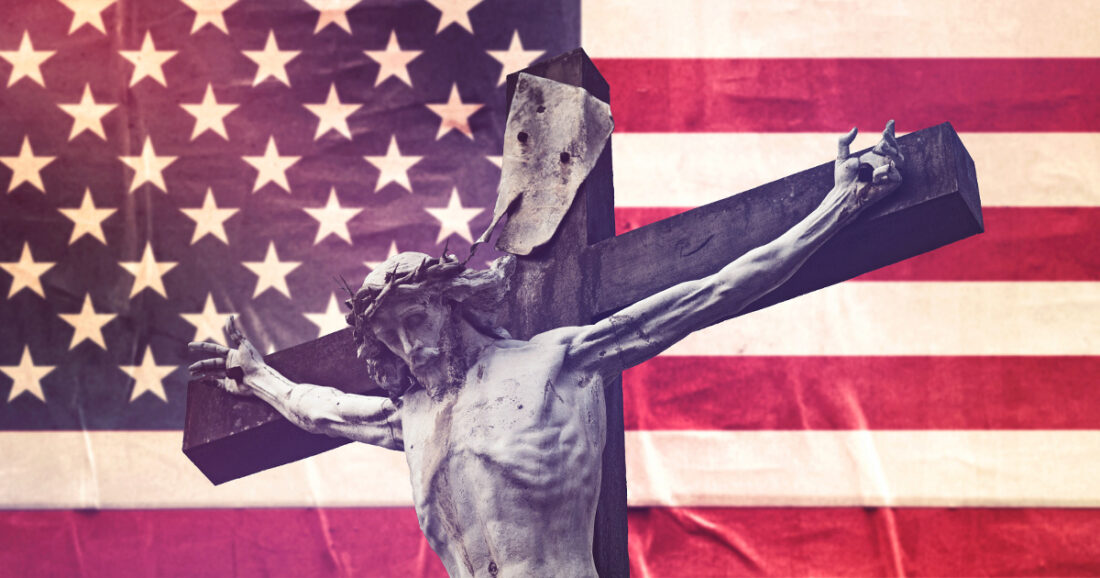The decline of American Christianity is no secret. Recent works like Ryan Burge’s The Rise of the Nones and Stephen Bullivant’s Nonverts: The Making of Ex-Christian America have documented, analyzed, and explained quite deftly. The stats are shocking and the implications are quite disturbing—half of all Americans aged 18-29 are not only not religious but believe religion to be a destructive force in society.
French aristocrat, judge, and legislator Alexis de Tocqueville traveled to a very young United States of America and when he himself was not yet even thirty years old. His famous treatise Democracy in America cataloged his observations and experiences, and it provides an interesting perspective on the forces that animated the American republic in the earliest days. In it he writes, “Religion in America takes no direct part in the government of society, but it must be regarded as the foremost of the political institutions of that country; for if it does not impart a taste for freedom, it facilitates the use of it.”
Religion, and specifically Christianity, is then a necessary component in the cultivation and preservation of American freedom. He later identifies three ways in which this assertion is true. First, religion provides a moral vocabulary that shapes cultural mores. These cultural mores mediate between individual citizens and between citizens and the state by providing the moral vocabulary which is the substance of social cohesion. Second, Christianity inspires an openness and optimism about the future. The faith is eschatologically ordered and looks ahead to the second coming of Jesus Christ. It is not fixated merely on the present, so adherents to the faith are forward-looking. Third, Christianity orients its adherents toward the common good. It may be that there are radically divergent understandings of what constitutes the common good, but Christians from every form of the faith are oriented toward some conception of it that is informed by the same Scriptures, figures, and many of the same traditions.
Given the critical ways that Christianity has contributed to the cultivation and preservation of democracy, what happens as it declines? And worse, when most citizens come to view it as a destructive rather than a constructive force in society? Tocqueville further writes, “I do not know whether all Americans have a sincere faith in their religion—for who can search the human heart?—but I am certain that they hold it to be indispensable to the maintenance of republican institutions. This opinion is not peculiar to a class of citizens or a party, but it belongs to the whole nation and to every rank of society.” Once that indispensable force erodes it is difficult to envision a positive result.
During the era of Tocqueville’s visit, religious diversity in America was almost exclusively limited to internal differentiation within the Christian tradition. Religious conflict was between Catholics and Protestants and emerging sects built upon Christian heresy. There were hardly any non-religious or atheist citizens. This fundamental homogeneity has historically resulted in many more areas of agreement than disagreement. So, the decline of American Christianity might best be traced to the point at which “Christians” became a distinct voting block with social and political power. It is hard to say exactly when that may have been. Might it have been the election of John F. Kennedy, the nation’s first Roman Catholic president in 1960, when some Protestants coalesced into an anti-Catholic voting block? Or when the pro-life movement galvanized political cooperation across confessional grounds? Or was it with the rise of the Moral Majority about twenty years later? There are several contenders, but the mere fact that “Christian” had become a distinct demographic category rather than the default for every American is a subtle sign that political and social power was beginning to erode.
Christians today are reeling as they see political and social influence evaporate at the same time that their numbers decline. This has created a certain panic within Christianity that has resulted in division, polarization, incivility, and distrust. This is not merely regarding the Christian community’s relationship with the world of which they are in, but not of, but also with groups within the Christian camp. It seems that if Tocqueville is right about the essential role that Christianity plays in preserving American democracy and Christians truly do want to stem the tide of both religious and civilizational decline, they need to understand the nature of their own decline and sort out these differences that really have nothing to do with the civilizational and democratic utility of the faith.
Jesus famously prayed that we “may all be one.” Unity is a Christian ideal, but Christian history has proven that that ideal is quite elusive. For the sake of our neighbors, our nation, and our fragile democracy, however, we need to find ways to be united at least enough to provide the animating force that has uniquely served to cultivate and preserve American liberty.
Mr. Trey Dimsdale is the Executive Director of the Center for Religion, Culture and Democracy.
